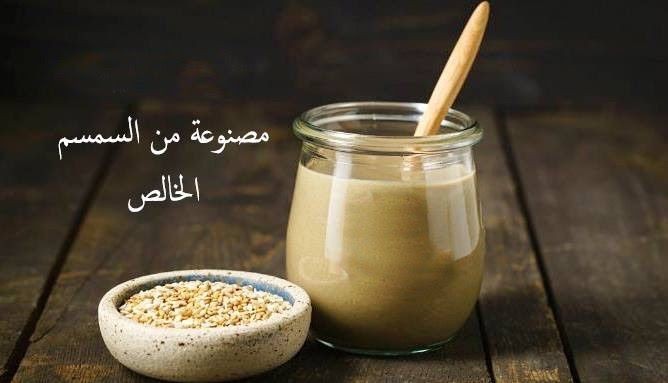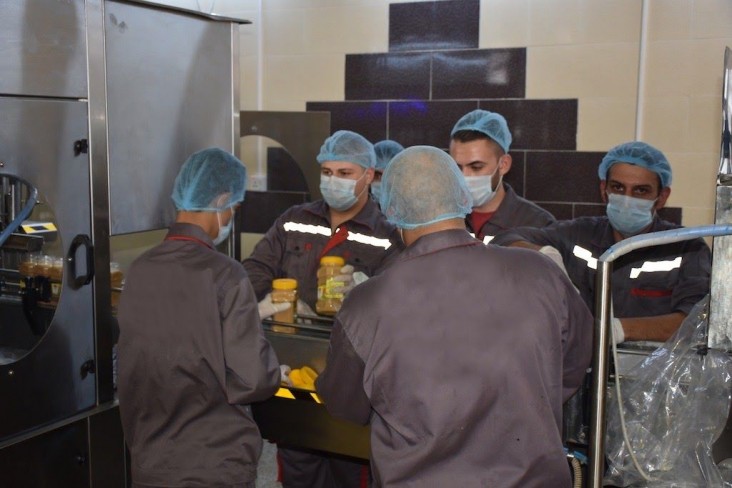Speeches Shim

USAID’s Northern Iraq Investments activity supports businesses eager to rebuild the economy.
When the so-called Islamic State of Iraq and Syria (ISIS) invaded northern Iraq in 2014, Ali Hassan* and his family were forced to flee. Hassan’s hometown of Bashiqa is renowned for its centuries-old tradition of tahini production. His family business, which had been producing tahini for 47 years, was destroyed during the invasion.
“It’s difficult to express how I felt when I heard my factory was destroyed. I was shocked for a long time. I still don’t know what happened,” he recalls.
Hassan is a member of the Yazidi community, a religious minority persecuted during ISIS’s takeover of parts of northern and central Iraq. Despite the destruction of his factory and community, he was determined to rebuild. “It gave me strength to want to keep the legacy I received from my grandparents alive for my own grandchildren,” Hassan said.
Less than a year after leaving Bashiqa, Hassan reopened his business in Erbil, but he battled to overcome hurdles, noting: “It is difficult to convince the local banks to finance my start-up project. Local banks are also asking for a huge amount of collateral. Sometimes over 300 percent of the capital.”
USAID Iraq’s small to medium-size enterprises (SMEs) financing activity, Northern Iraq Investments (NII), is working to improve access to finance for ambitious entrepreneurs like Ali. NII is managed by GroFin, a specialist development financier operating in Iraq and 14 other countries in Africa and the Middle East. As part of USAID’s Middle East and North Africa Investment Initiative, this activity supports and invests in business activities and SMEs to help Iraqis rebuild their economy.
In an environment where entrepreneurs - and minorities especially - struggle with a lack of collateral, providing long-term financing at a fair interest rate is critical. “Minorities do not have collateral to provide because their property and land has lost a lot of its market value following the invasion by ISIS,” says Hawrre Meerani, Investment Manager at GroFin.
Hassan’s restored business produces 16 to 20 tons of sesame paste per day and has a national distribution network in place to serve Iraqi wholesalers. The company employs 46 workers – including 25 women. Like Hassan, all of them lost their homes and livelihoods when they fled ISIS.

Now, Hassan has the opportunity to expand his business even more. Through recent USAID financing from NII, Hassan is planning to upgrade and expand his factory, which will add 20 additional jobs. Hassan has committed to continue to hire more internally displaced people and members of minority groups who are in need of a steady income to rebuild their own lives.
He also hopes to increase his market share and even export his product, for the first time, to surrounding countries. Also through this USAID activity, Hassan’s tahini company was introduced to the global supermarket chain, Carrefour, and negotiated an agreement for its products to be sold in four of Carrefour’s Iraqi branches.
Meerani of GroFin says that, “Businesses here are positive about the future.”
* Pseudonym

Comment
Make a general inquiry or suggest an improvement.